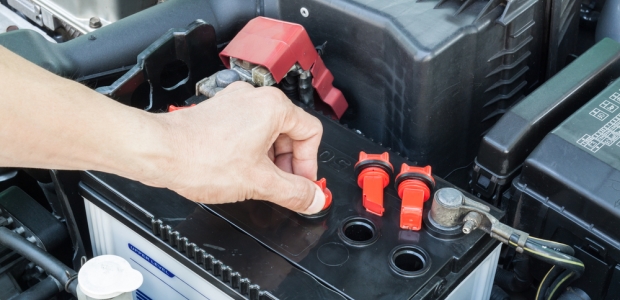
This Earth Day, Do Your Part and Recycle Your Old Vehicle Batteries
It's possible that cars on the road today are being powered by the same materials that were in a battery used in a vehicle from decades ago. In fact, lead used in a battery in the United States will continue in the manufacture-recycle-manufacture loop for nearly 280 years.
- By Ray Shemanski
- Apr 22, 2016
Did you know that 99 percent of all old conventional vehicle batteries are recycled each year? And while vehicle batteries are by far the world's most recycled consumer product, still, every year there are more than 1 million used batteries that are not responsibly recycled.
When lead-acid batteries are recycled properly – and it's not limited to just the battery from your car or truck, it can also be a battery in your boat, lawn tractor, golf cart, motorcycle, and more – 99 percent of the battery's components can be processed and reused to make new batteries or even other products. The metals used in conventional batteries are the most recycled materials in the world, even more than paper, glass, and cardboard. Also, the plastic from a battery can be recycled to make new battery cases, and the electrolytes can be reused or made into detergents.
The closed-loop recycling process of vehicle batteries, which is achievable due to the design of the product and the materials that are used, means it's possible that cars on the road today are being powered by the same materials that were in a battery used in a vehicle from decades ago. In fact, lead used in a battery in the United States will continue in the manufacture-recycle-manufacture loop for nearly 280 years.
Almost every vehicle battery uses materials that can be continually recycled. This allows the materials in old recycled vehicle batteries to be turned into the raw materials that make new batteries, which in turn helps to protect our natural resources.
When a lead-acid battery is not properly recycled, it can end up in a landfill, where its internal components have the potential to be exposed and impose a burden on the environment.
As the world's largest manufacturer and recycler of vehicle batteries, Johnson Controls' goal is to have all vehicle batteries recycled responsibly and kept out of landfills. To help achieve this, Johnson Controls has made a commitment to design, make, transport, and recycle batteries in the safest, most sustainable way. When building a new battery, the company uses up to 80 percent recycled materials.
For the consumer, recycling a used battery is really quite easy. Consumers are able to drop off an old vehicle battery at a local retailer, and the retailer will do the rest. In some cases, retailers will grant a credit for a used battery when a new one is purchased. When recycling, it's important to transport a used vehicle battery properly. This can be done by wrapping a thick towel around it or setting the battery in a cardboard box and layering the box with newspaper in case it leaks. Make sure it stays upright and doesn't tip. For extra protection, be sure to wear gloves.
So if you have an old battery sitting in the back of your garage just collecting dust, do your part to help eliminate this safety hazard and take it to your local retailer today. To find a battery recycling location near you, visit www.recyclingmybattery.com. For more information about Johnson Controls, visit www.johnsoncontrols.com.
About the Author
Ray Shemanski is vice president and general manager, aftermarket, for Johnson Controls Power Solutions (www.johnsoncontrols.com) of Milwaukee, Wis.